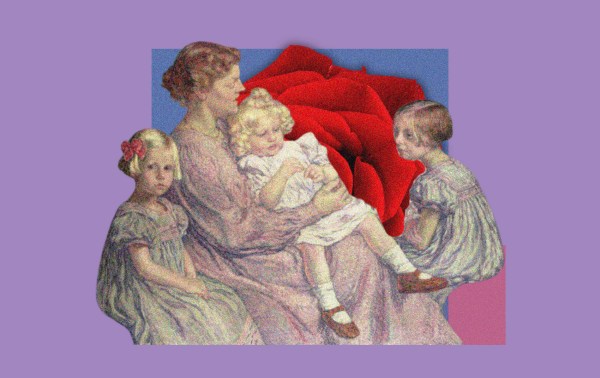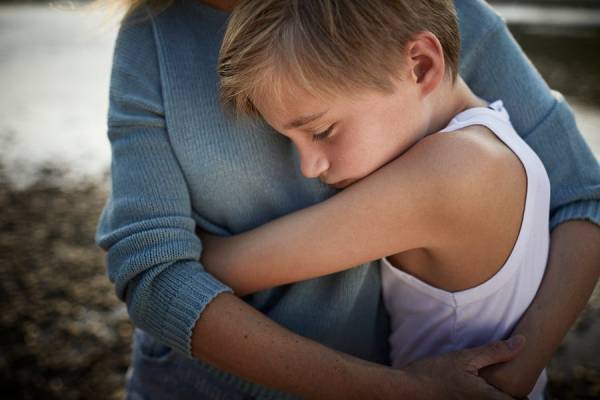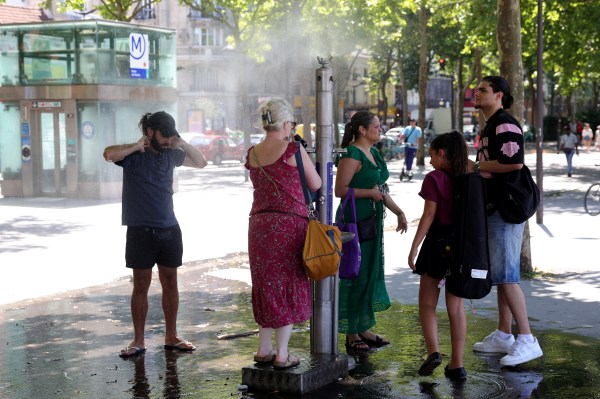Recently, the pop star Chappell Roan made waves by announcing that motherhood is “hell.” Expressing horror that her mom friends have to “get [expletive] babysitters” to attend her concerts, Roan said she doesn’t know anyone with young kids “who has light in their eyes; anyone who has slept.” Social media furiously debated Roan’s comments. Here’s the complex truth: Roan is right. And also wrong.
First, Roan is just flat-out wrong that moms aren’t happy. In general, mothers—especially married mothers—are typically happier than their counterparts without kids. The Institute for Family Studies recently conducted a survey on moms, finding 21 percent of married moms with kids self-report as “very happy” and 54 percent call themselves “pretty happy.” That’s higher than the 12 percent and 51 percent, respectively, of married women without kids who described themselves as such. For unmarried women without kids, the numbers were even lower.
Critics might ascribe married moms’ happiness to their greater wealth, rather than marital and maternal bliss per se. However, the increased happiness of moms is in keeping with other studies that show that a strong focus on interpersonal relationships is one of the most important predictors of happiness—and even health—into old age. For many of us, children and grandchildren (or even great-grandchildren!) provide opportunities for forming the kinds of deep and loving relationships that can last our whole lives.
It’s true that the early days—to which Roan is referring—are not always rosy. The first years of motherhood are a period of incredible transformation, as disruptive as the biological and psychological changes a person goes through during puberty. Thus, this period of becoming a mom is sometimes called “matresence.” A mother’s brain is literally reshaped by pregnancy and childbirth in ways neurologists can detect on scans. Her body undergoes massive hormonal shifts. Psychologically, a young mother experiences a profound mental evolution in tandem with the biological changes she undergoes. Science writer Lucy Jones explains in her book Matrescence: On Pregnancy, Childbirth, and Motherhood that this should all be common knowledge, but Western societies fail to “recognize matrescence as a major transition: a transition that involves a whole spectrum of emotional and existential ruptures, a transition that can make women ill, a transition in which the mother, as well as the baby, could be celebrated.”
As Roan observed, this transformation is often very difficult. Lost sleep, the “baby blues,” a feeling of loss of self: all these and other issues are common stumbling blocks for new moms. But for many women, this metamorphosis also sparks periods of creativity and flexibility—allowing them to reevaluate career paths, philosophical commitments, social values, and more. To draw an analogy: The Austrian economist Joseph Schumpeter is renowned for his principle of “creative destruction.” In 1942, he argued that a core virtue of capitalism is that it “incessantly revolutionizes the economic structure from within, incessantly destroying the old one, incessantly creating a new one.” Early motherhood, I think, operates on the same principle. Your structure is revolutionized from within. The old one is destroyed; a new one is created.
What is the creative potential of all this destruction? I reached out to Rachel Anderson, a mother of two and graduate of Harvard Law School and Harvard Divinity School who began her career in nonprofit and religious organizations. She now runs Hope& Consulting, working on “develop[ing] strategies for navigating religious and ideological diversity in the public square.”
Many of early days of motherhood during a career sabbatical were spent solely with her daughter, Anderson said, and while her daughter was in preschool, “I started imagining and then raising funds for a project that became my professional focus for the next seven years.” In other words, taking time out of the workforce to concentrate on family also provided the time and mental space she needed to rethink her professional life. She noted she and her husband made the finances work by living modestly and sometimes sharing housing with older relatives. For Anderson, “raising children is a creative act,” but one that can be compatible with other kinds of creativity. Her advice to other mothers? She hopes they can find “permission to pace oneself and for different seasons of life to take on their own rhythms.”
Your structure is revolutionized from within. The old one is destroyed; a new one is created.
Haley Stewart, a mother of four who is also a writer and editor, told me that motherhood sparked her own creativity. After her children were born, she found herself compelled to write in order “to process the huge transition that had just happened to me.” For her, writing was the best way “to reflect on the joys and challenges breaking open my heart.” Noting parallels between the challenges of childbirth and the challenges of authorship, she said being a mother gave her confidence that she could write, saying: “I had already participated in bringing something into the world that had never existed before.”
“Both motherhood and the creative life are incarnational,” Stewart said. “They are about lovingly bringing things to life and giving them flesh, crafted out of the deepest places of your soul.”
The transformation experienced by Anderson and Stewart is one I have experienced myself. Initially trained as a lawyer, I practiced law for the first decade of my adult life. After my children were born, however, my priorities changed. While driving home from the office when my oldest son was still a little peanut (he’s now about to turn 10!) I would often ask myself: What do I want out of life? What do I want for my kids? Ultimately, I realized pursuing the golden ring of law firm partnership was not for me. I felt like I was throwing away my education and the hard work I’d put into my career, but I missed my kids terribly while trying to juggle responsibilities to my firm and clients. I quit the practice of law to stay home, and I now homeschool while working part-time. It was not until after having my kids that I could envision a life that would allow me to meld work and family so completely, even if it’s sometimes rocky to be on a Zoom call with all four children demanding things simultaneously. Just the other day, I was drafting a work email with my toddler sitting on my lap when she announced: “I push buttons!” Hitting “enter,” she then sent the email before I was ready.
Obviously, many women need to or want to make different choices: budget constraints, career ambitions, family circumstances, and more shape a mother’s path. And the “destructive” phase of matrescence is no joke. (I strongly encourage those who are concerned they may be experiencing postpartum depression or related conditions to reach out to a health professional.)
Still, I would urge young mothers deep in the trenches of early motherhood to have hope. Bringing new life into the world is one of the most meaningful kinds of creative work a person can do, and sometimes it also sparks other kinds of professional and personal innovation. If you are a young mom deep in the “destruction” phase of motherhood, when you come up for air, I encourage you to consider: What might you now be enabled to create?









Please note that we at The Dispatch hold ourselves, our work, and our commenters to a higher standard than other places on the internet. We welcome comments that foster genuine debate or discussion—including comments critical of us or our work—but responses that include ad hominem attacks on fellow Dispatch members or are intended to stoke fear and anger may be moderated.
With your membership, you only have the ability to comment on The Morning Dispatch articles. Consider upgrading to join the conversation everywhere.